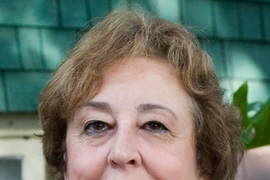Lita Nelsen has been part of MIT’s Technology Licensing Office (TLO) since 1986, and has been its director since 1992, helping to shape the Institute’s highly successful culture of technology spinoffs. This month, she was awarded the Lifetime Achievement Award of the organization Global University Venturing. MIT News asked her to talk about how the TLO has achieved its outstanding record of success.
Q. What do you think are the key factors that have made MIT such a fertile ground for entrepreneurial ventures?
A. A lot of factors, growing from our history. Among them:
- A high volume of state-of-the-art research.
- The best and the brightest in faculty and students.
- “Mens et manus”: the best science coupled with a desire to have impact in the real world, and a very long tradition of working collaboratively with the industrial world.
- Encouragement to take (intelligent) risk; failure is a learning experience, not a black mark.
- Many decades of companies spinning out of MIT: My husband and I graduated from MIT in the ’60s, and each of us joined our professors’ startup companies.
- An infrastructure that has developed in the region to support startup companies (venture-capital firms, lawyers, real-estate people, accountants, and so on, who understand startup companies) — which grew up symbiotically with MIT over those decades.
- Role models: If you are a student here, you are bound to meet many people here who have started companies; ditto for faculty who have colleagues who have already done it.
- And now, the MIT internal “entrepreneurial ecosystem” — the Enterprise Forum, Venture Mentoring Service, the Deshpande Center, the Trust Center, the $100K contest, and so on — all are there to educate and support people with ideas and entrepreneurial ambitions.
Q. What is the TLO’s role in helping innovations that come out of MIT’s labs make the leap to becoming successful products in the marketplace?
A. We protect the intellectual property — mostly through patents, so as to provide a good “dowry” to incentivize entrepreneurs to start companies. Then, we emphasize “getting the deal done fairly” rather than “getting the best deal.”
We can do this because we have excellent support and understanding from MIT’s senior administration. Together we understand:
- “Impact, not income”: It’s not about the money. Sure, we like it when our ships come in, but the primary focus is getting the deal done so that the technology gets developed.
- Clearly articulated and simple, consistently enforced policies — so that every deal doesn’t involve a committee, and we can be very creative within policy.
- Senior staff with both technical background and extensive business experience so that they are “bilingual” in academia and industry. And each is personally devoted to the mission. It’s a great gang.
And we really like our students and faculty; that’s highly motivating.
Q. What kinds of lessons have you learned that might help people at other institutions foster the creation of new businesses based on their research?
A. In addition to the factors enumerated above, I would add:
- Keep it simple: clear policies, with consistent support from above.
- Don’t try to get rich from tech transfer. The statistics are against you; you might get lucky occasionally, but that’s not the purpose.
- Give it time; the current internal/external infrastructures in Kendall Square have developed over 50 years or more.
- Hire bright, creative people with a sense of mission.








